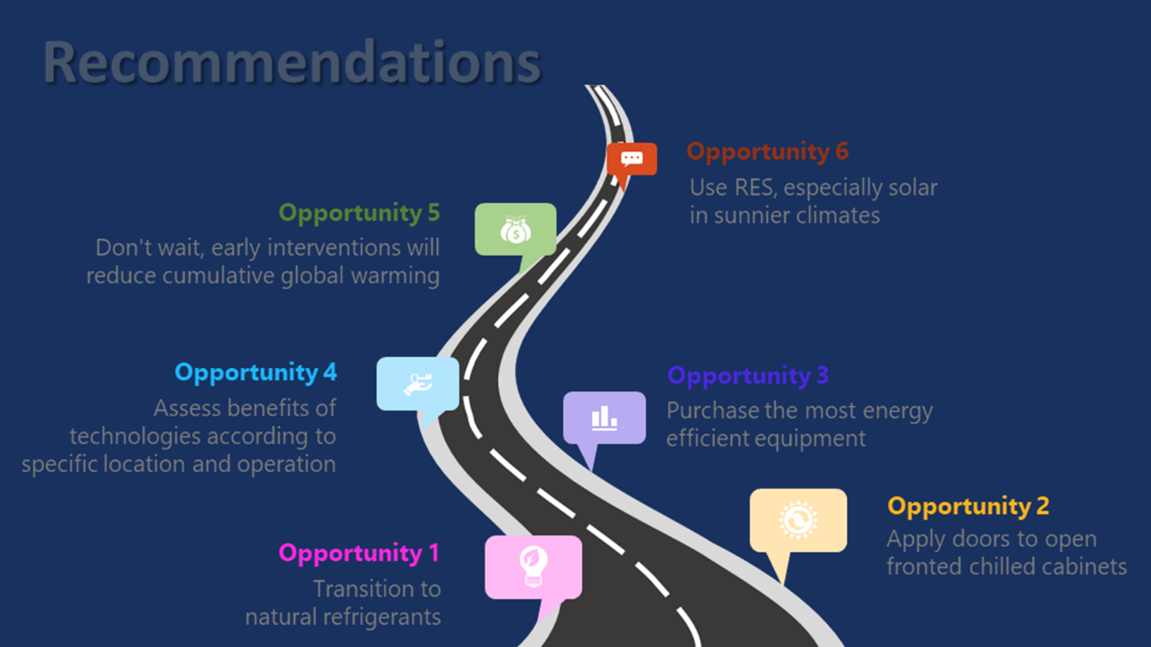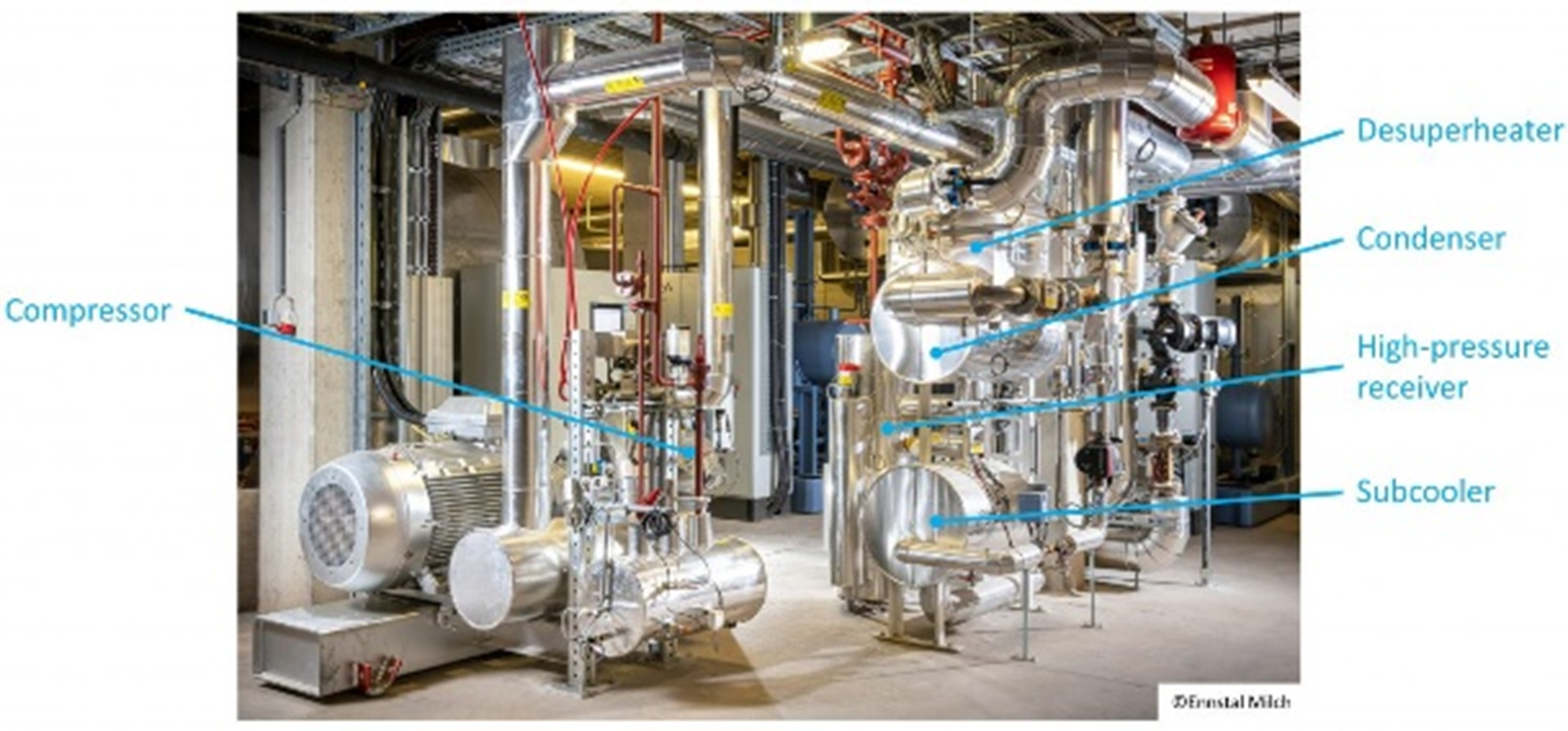About ENOUGH
The ENOUGH project is a comprehensive initiative aimed at addressing and mitigating emissions in the food sector, contributing directly to the EU's Farm to Fork strategy's goal of achieving climate-neutral food businesses. The project encompasses several key initiatives: a Retail Roadmap; dairy demonstrators in Austria and Norway; and a transport demonstrator for short distances in Italy.
Description of success
The ENOUGH project has marked significant successes across its diverse initiatives, showcasing innovative approaches to reduce emissions within the food sector:
Retail Roadmap: The project developed a comprehensive roadmap for food retailers, detailing strategies for decarbonisation and achieving net-zero emissions. This roadmap is backed by an independent review of 95 technologies and strategies for the reduction of carbon emissions and energy consumption, covering Scope 1 and 2 emissions. Mathematical modelling provided insights into potential impacts up to 2050, taking into account global warming effects and grid carbon conversion factor changes.
Dairy demonstrators: In Austria, ENOUGH highlighted innovative approaches to reducing emissions in dairy processing. The project introduced a high-temperature heat pump that leverages waste heat from chilling processes for cleaning-in-place processes, leading to significant CO₂ savings. Similarly, in Norway, a CO₂ refrigeration system was successfully implemented, substantially reducing energy consumption and contributing to the goal of a zero-emissions dairy industry.
Transport demonstrator for short distances: In Italy, the project introduced an efficient refrigeration unit that uses natural refrigerants and electric power, significantly reducing greenhouse gas and other pollutant emissions in food transportation.
Highlights
- ENOUGH’s pioneering Retail Roadmap offers a strategic blueprint for food retailers to decarbonise and achieve net-zero emissions. This initiative is underpinned by a thorough review of 95 technologies and strategies, showcasing the potential for significant reductions in energy consumption and carbon emissions.
- The dairy demonstrators in Austria and Norway have shown the potential for substantial energy savings and CO₂ reductions through the adoption of innovative cooling and heating technologies. These successes highlight the practical applicability and effectiveness of sustainable technologies in dairy processing.
- The transport demonstrator in Italy has shown the feasibility and efficiency of using natural refrigerants and electric power in refrigerated transport units, marking a significant step towards reducing greenhouse gas emissions in food transportation, and offering a scalable model for cleaner, more sustainable logistics in the food industry.
Outputs
The construction and installation of the ground-breaking natural refrigerant unit in the transport demonstrator for short distances marks a milestone in the ENOUGH project. The natural refrigerant unit has proven itself to be more efficient than traditional units by dramatically cutting refrigeration-related greenhouse gas emissions during the food transport process, showcasing its potential as a more sustainable alternative.
The Retail Roadmap has already had a far reach, being discussed at international trade shows and trade associations.

The potential of the dairy demonstrators to contribute to a sustainable food chain has been shown to the project’s partners, which include research institutions and companies from the dairy industry. A workshop was held in Norway where the novel high temperature heat pump installation from the Austrian demonstrator was displayed, along with the natural CO₂ refrigerant from the Norwegian demonstrator.
Impact
The ENOUGH project's impact is multifaceted and significantly advances sustainability within the food sector. Through the Retail Roadmap, ENOUGH has demonstrated that food retailers can swiftly move towards net-zero emissions by adopting currently available technologies, emphasising the critical role of grid decarbonisation. The dairy demonstrators in Austria and Norway have shown substantial energy savings and reductions in CO₂, providing robust evidence of the effectiveness of innovative technologies in dairy processing. The transport demonstrator in Italy has successfully showcased the potential for significant reductions in greenhouse gas emissions in food transportation through the use of natural refrigerants and electric power.
Lessons
Overall, all of the ENOUGH project's successes contribute to building a more sustainable and resilient food chain. There is not just one solution to the sustainability issues in the food industry, and the diverse methods and solutions are building blocks that join together to make a greater impact.
In the future, there needs to be stronger communication with stakeholders in the transport and dairy industries. The industries are often a complex landscape of different actors, and ongoing communication ensures that there is awareness of the positive impacts that the solutions can have and of how stakeholders can benefit from a sustainable transformation.
Other information
As the project progresses, the concepts demonstrated in the success stories will be fine-tuned and effort will be made to expand them for wider industrial use.


